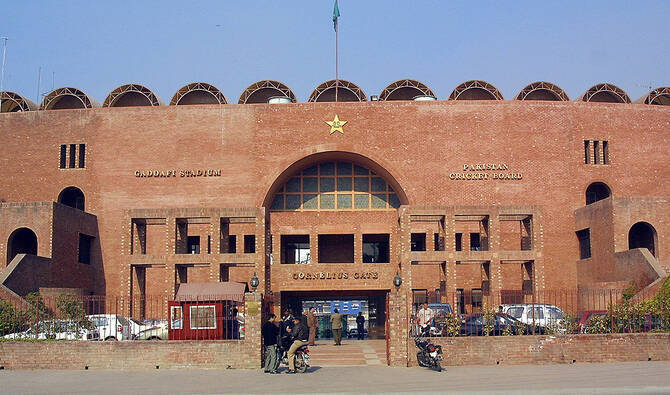KARACHI: As Saudi Arabia opens up more tourist destinations beyond Makkah and Madinah and expedites its visa process, a top Saudi Tourism Authority (STA) official said this week that the Kingdom is aggressively targeting Pakistani tourists, and plans to welcome over 3.5 million of them per year by 2030.
Saudi Arabia is a favorite destination for thousands of Pakistanis who travel to the Kingdom each year, especially during the month of Ramadan, to pray at Muslim holy sites in Makkah and Madinah, and perform the Umrah pilgrimage. Of late, the Kingdom has started exploring options to increase tourism between Pakistan and Saudi Arabia, which included an agreement earlier this week to increase the number of flights between the two countries.
To ensure more facilities for Pakistani pilgrims, the STA launched the Nusuk travel platform in Pakistan on Tuesday. Nusuk is the kingdom’s first official planning, booking and experience platform to create Hajj or Umrah itineraries to Makkah, Madinah and beyond. It allows travelers from all over the world to easily organize their visit to Saudi Arabia by facilitating their e-visa process along with flight and hotel bookings.
“We are very optimistic with the launch of Nusuk because from Pakistan in this year alone, we have welcomed more than one million visitors,” Alhasan Aldabbagh, president of the Asia-Pacific (APAC) markets at STA, told journalists Tuesday at an event held to launch Nusuk.
“And most of them are coming to Saudi to perform Umrah, but also there are a lot of Pakistanis who are coming for business.”
Aldabbagh said Pakistan is an “important and strategic” market for the Kingdom since there are over 2.5 million Pakistanis living in Saudi Arabia who are visited by their friends and relatives each year.
“We have a big ambition for Pakistan, we are targeting to attract more than 3.5 million Pakistanis by 2030 and I believe this is a very conservative estimate,” the STA official said.
Saudi Minister for Hajj and Umrah, Tawfiq Bin Fawzan Al-Rabiah arrived in Pakistan on Sunday for a four-day official visit with a large delegation, where he met Pakistani leaders to discuss bilateral relations and tourism.
Aldabbagh said Saudi officials had studied Pakistani tourists who travel to the Kingdom frequently, adding that they divided them into segments to better understand the tourists’ varying needs.
“One of the big [Pakistani tourists] segments that are coming to Saudi is during Ramadan, this is the high season and they tend to stay longer in Saudi in Makkah and Medina,” Aldabbagh observed.
The STA official said another segment of Pakistani tourists travel to the Kingdom during the off-season on holidays, during summers, and on some important religious events such as the Al Isra and Al Mi’raj, and the birthday of Prophet Muhammad (PBUH).
Muslims refer to Isra as the night journey that the prophet undertook from Makkah to Masjid Al-Aqsa and Mi’raj as the journey he undertook from Masjid Al-Aqsa to the heavens.
Aldabbagh said the STA was planning to target Pakistani tourists who spend their vacations in Europe, the US, Dubai or in Turkiye, adding that the authority was planning to launch a “big marketing campaign” by the end of this year in Pakistan.
“We want to work with celebrities and influencers and travel bloggers here in Pakistan to bring as much exposure to the transformation that we’re doing to make Umrah easier and more accessible than ever before,” he said.
He said the Kingdom was planning on increasing focus on other historical Islamic sites as well for tourists who visited Saudi Arabia to perform Umrah. He said Saudi authorities are inviting tourists to visit the Cave of Hira, Mount Uhud and several iconic mosques in the country.
“Saudi today is the true home of Arabia,” Aldabbagh noted. “We have six UNESCO World Heritage sites and over 10,000 archaeological sites in Saudi. We have places like El-Balad in Jaddah, which is the old downtown.”
He reiterated that the Kingdom has expedited its visa issuing process, enabling visitors to apply for an Umrah visa online that would be issued in less than 24 hours.
The STA official said Saudi Arabia would launch winter festivities that would feature several activities in Riyadh, Al Ula, and other Saudi cities as well.














